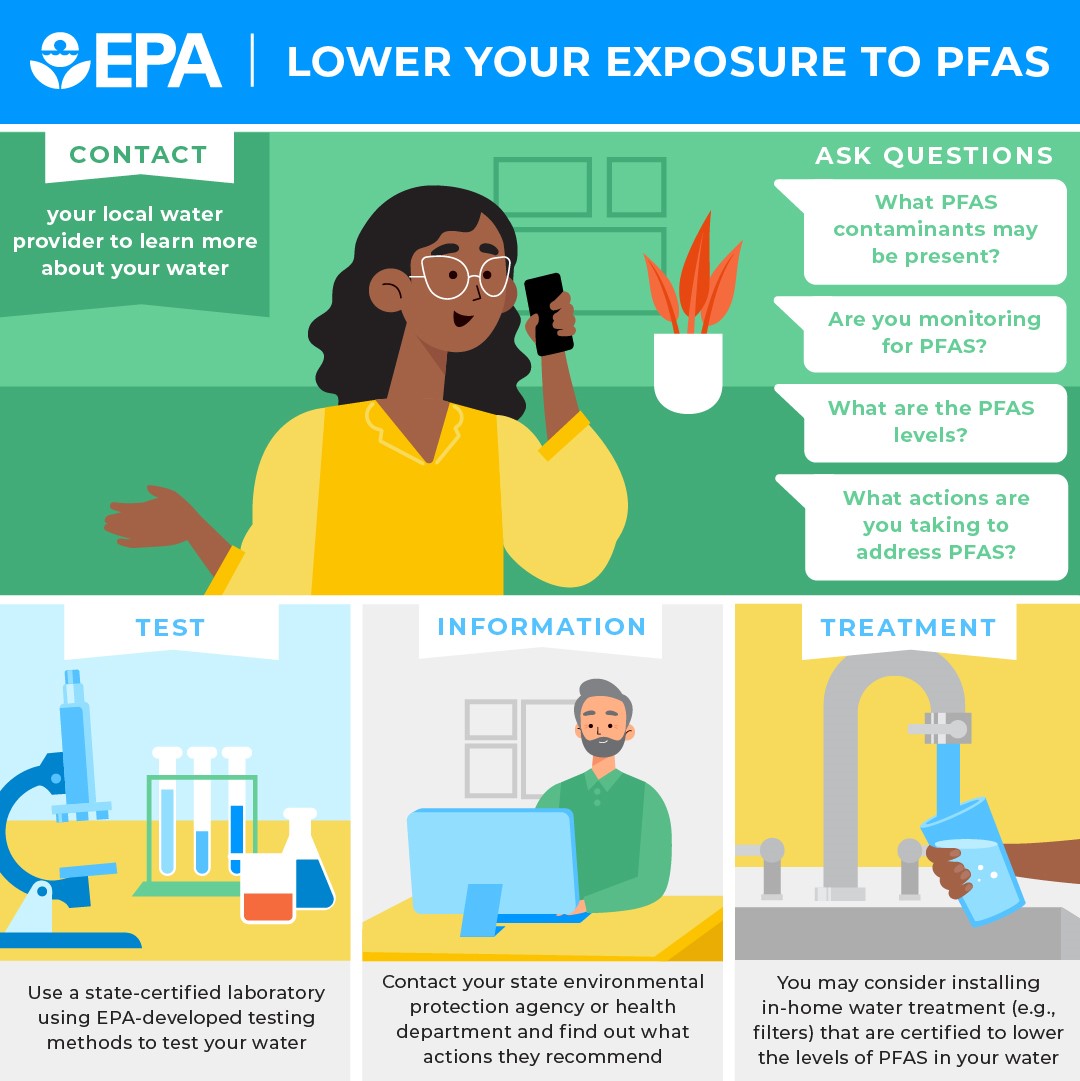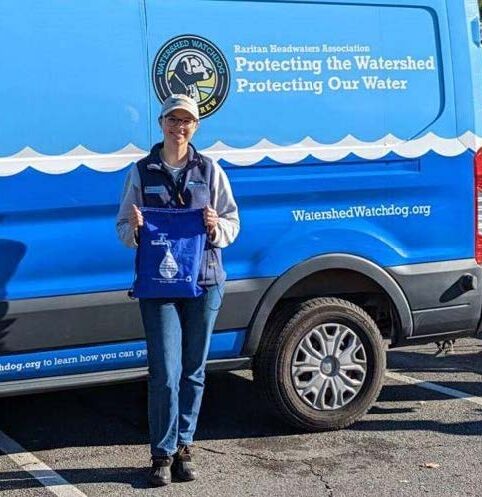In a major victory for public health, the federal government has taken a two-pronged approach to tackle harmful Per- and Polyfluoroalkyl Substances (PFAS) in drinking water. Firstly, utilities must now significantly reduce levels of these cancer-linked contaminants, nearly eliminating them from public water supplies. Secondly, two specific PFAS chemicals, PFOA and PFOS, have been classified as hazardous substances under the Comprehensive Environmental Response, Compensation, and Liability Act (CERCLA) also known as the Superfund law. This critical designation shifts the financial burden of cleanup from taxpayers to the polluting companies that manufactured or used these “forever chemicals” and empowers the government to hold these companies accountable. Manufacturers and users of PFAS will now be required to monitor and clean up any environmental contamination they cause. Learn more about this designation here.
Raritan Headwaters applauds the Environmental Protection Agency’s (EPA) finalization of a national drinking water regulation for PFAS. The EPA’s thorough evaluation, informed by over 120,000 public comments, culminated in legally enforceable Maximum Contaminant Levels (MCLs) for six PFAS compounds. This development is more aligned with the stringent standards set by the New Jersey Department of Environmental Protection (NJDEP) in 2019 but also introduces lower limits for three additional PFAS compounds, further enhancing the protection of public health, particularly for millions of New Jersey residents. Public water systems will have three years to test their supplies and see if they comply with the new limits. If they exceed the standard, they’ll be given an additional two years to meet the standard by implementing new filtration or treatment methods.
public comments, culminated in legally enforceable Maximum Contaminant Levels (MCLs) for six PFAS compounds. This development is more aligned with the stringent standards set by the New Jersey Department of Environmental Protection (NJDEP) in 2019 but also introduces lower limits for three additional PFAS compounds, further enhancing the protection of public health, particularly for millions of New Jersey residents. Public water systems will have three years to test their supplies and see if they comply with the new limits. If they exceed the standard, they’ll be given an additional two years to meet the standard by implementing new filtration or treatment methods.
These long-lasting chemicals have been linked to a variety of health problems, and establishing enforceable limits is a critical step towards protecting public health. Raritan Headwaters recognizes that many residents rely on private wells for their drinking water and are therefore responsible for their own water quality monitoring. Our organization has been a leader in offering water testing for residents since 1974.
At Raritan Headwaters, we’ve swiftly adapted to these regulatory changes by expanding our test offerings to include the additional parameters outlined in the EPA’s PFAS regulations. Residents can now access updated PFAS testing at upcoming Community Well Testing events and RHA offices in Bedminster and Flemington. The recent establishment of a dedicated PFAS testing laboratory by our state-certified lab partner, ensures efficient processing and improved turnaround times for results.
Through our Well Testing Program, we’ve tested over 240 wells throughout the watershed for PFAS contamination, with approximately 65% showing some level of detection. If PFAS are detected, it’s essential to note that treatment options are available. For more information on treatment solutions, please refer to the resources provided by the EPA and NJDEP, linked below.
We encourage all residents to stay informed about these critical developments and take proactive steps to safeguard their drinking water. Together, we can ensure the continued health and well-being of our community.
To arrange for a test kit through RHA, visit: https://www.raritanheadwaters.org/get-involved-2/groundwater-well-testing/
For more information on PFAS and the EPA Rule, visit: https://dep.nj.gov/pfas/epa-pfas-rule/
NJDEP Updated Fact Sheet on PFAS: pfas_drinking water_2024




